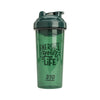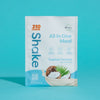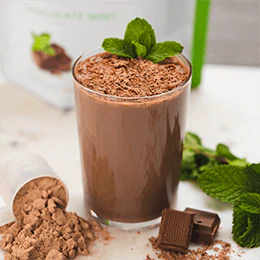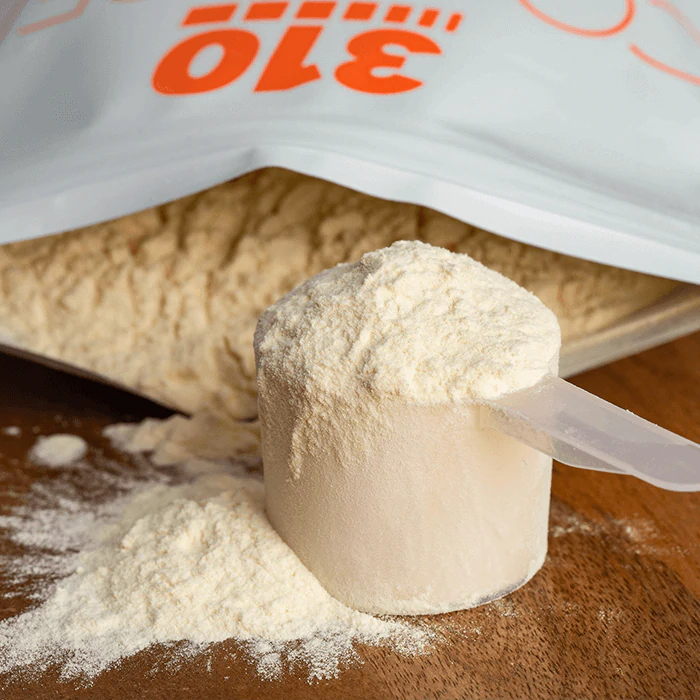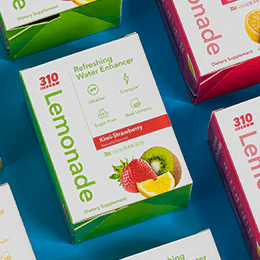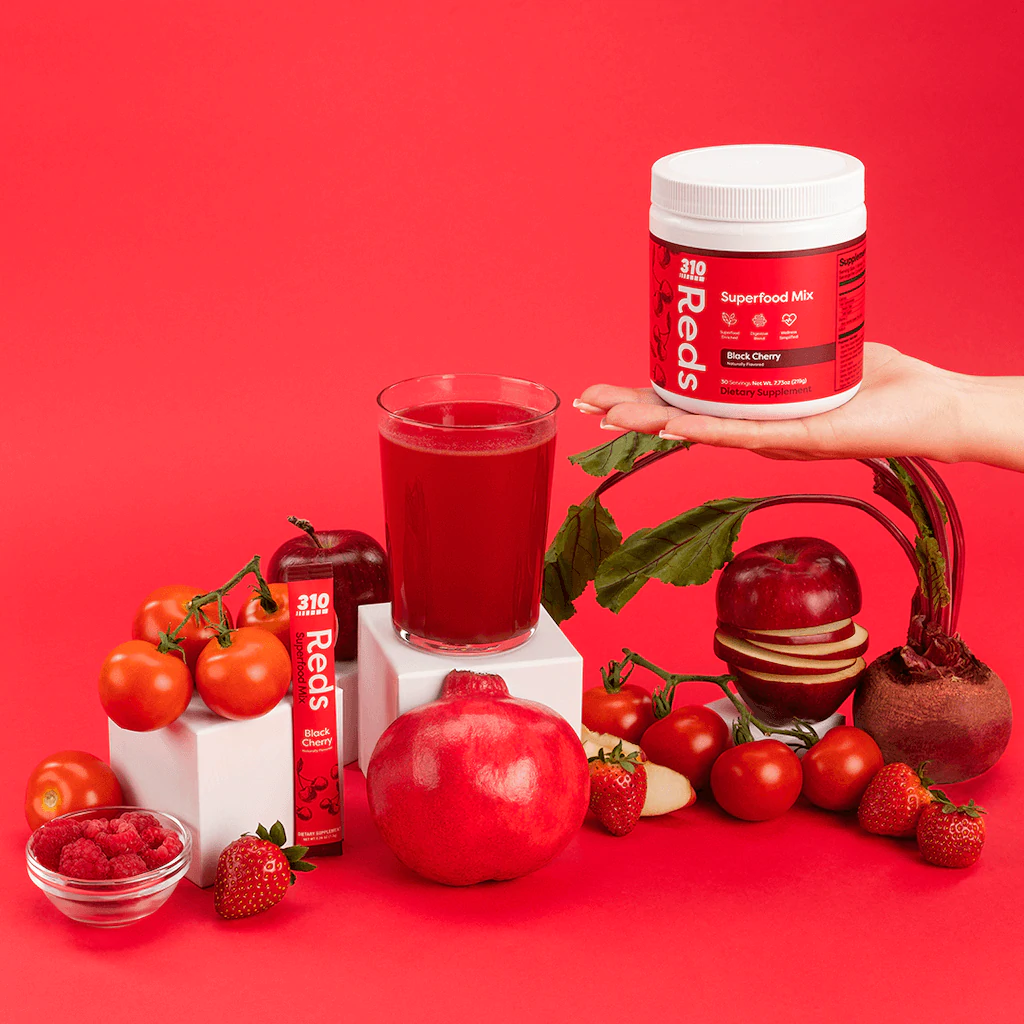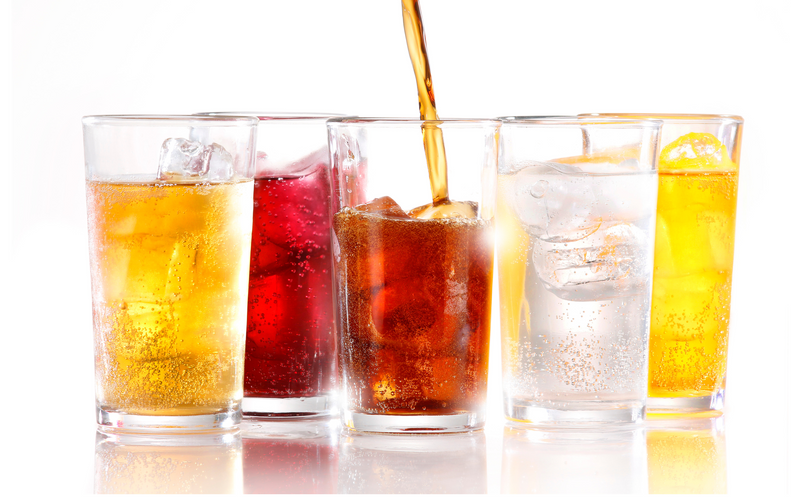Did you know that sugar-sweetened beverages may contribute the highest amount of sugar to your diet out of any other type of food or drink? They’re so easy to mindlessly enjoy that most people aren’t even aware of how much added sugar and calories they’re adding to their diet with every sip. And it’s not just soda you have to look out for!
One of the biggest steps you can take towards your journey to healthy weight loss is cutting out these sugary drinks from your diet. But what makes sugar-sweetened beverages so bad? And how much sugar is there really in some of the worst sugar-loaded beverages? Read on to find out!
And as you start swapping out sugary drinks for healthier alternatives, try turning up the taste and turning down the sugar with our brand new 310 Blackberry Lemonade. Refreshing and naturally flavored, with zero sugar and only 5 calories, it’s the perfect yummy sugar-free alternative.
Psst… We made some exciting UPDATES to our 310 Lemonade formula, and the new Blackberry is even BETTER than before. Stay until the end of this article to find out what they are...
Grab YOUR new 310 Blackberry Lemonade today!
What Are Sugar-Sweetened Beverages?
Sugar-sweetened beverages are any drinks sweetened with high levels of added sugar. This includes sugars such as high fructose corn syrup, sucrose, fruit juice concentrates, cane sugar, or corn sweetener.
If you think sugar is only in the “really bad” drinks like soda, unfortunately, that's not the case. Common sugar-sweetened beverages include not only soda, but energy drinks, sports drinks, fruit concentrates, fruit juices, and some coffee and tea beverages.
Why Are Sugar-Sweetened Beverages Bad for You?
While it’s okay to enjoy a sweet treat every once in a while, these sugar-sweetened beverages have more than a little sweetness. Loaded in calories and high in sugar, sugary drinks are often associated with weight gain, obesity, diabetes, heart disease, kidney diseases, and more.
One study found that those who drink one to two cans of sugary drinks have a 26% higher risk of developing type 2 diabetes. The risk for cardiovascular disease is even higher. One study found that participants who drank two or more servings every day had a 31% higher risk of early death from cardiovascular disease.
Sugary drinks represent the largest source of added sugars in the American diet, with 24% of all added sugars coming from these sodas, fruit juices, and sport and energy drinks. And with the average American adult consuming almost 270 calories of sugar every day — over two to three times the recommended amount! — this makes sugar-sweetened beverages a major health concern.
Can Sugary Drinks Lead To Weight Gain?
Yes, loading up on sugary drinks can have some derailing impacts on your healthy weight loss goals. Here’s why:
- All the calories, none of the benefits: Sugary drinks contribute extra calories to your diet without adding any nutritional value. One of the biggest causes of weight gain is more calories consumed than used throughout the day. And drinks that contribute nothing but empty calories are going to easily push you above your recommended calorie limit.
- Turns off your appetite-control: Sugar-sweetened beverages are easy to mindlessly consume because you never feel full or satisfied after drinking a can of soda or a sports drink. This trains your brain to want more to satisfy your unfulfilled cravings.
- Storing calories as fat: The more sugar you consume, the more insulin your body needs to produce. When your body’s levels of insulin are too high it starts to store more calories as fat instead of using it for energy.
- Drink vs. Dessert: You know you’re not eating healthy when you indulge in a piece of cake. But it’s normal to not always view your energy drink or fruit juice the same way. This means you’re less likely to limit your sugary drink intake than your dessert intake, even though they’re both equally loaded in sugar and calories.
- The more you drink, the more you want: Sugar triggers your brain’s reward center, similar to addictive drugs. This means that the more sugar you drink, the greater your sugar cravings could be. This is counterproductive to weight loss goals because it’s hard to focus on healthy weight loss when you’re too busy craving sugary drinks.
Sugary Drinks List: How Much Sugar Is in Sugar-Sweetened Beverages?
Below is the sugar and calorie content of some of the most popular sugar-sweetened beverages. Keep in mind that the American Heart Association’s recommendations for daily sugar intake are no more than:
- 9 teaspoons for men
- 6 teaspoons for women
This means some of these beverages have 100% or more of your daily dose of sugar... in just one drink!
According to Harvard Health, if you were to drink a sugar-sweetened beverage every single day for a year you’d gain up to 5 pounds. Not to mention putting yourself at risk for several major health concerns!

It might be surprising to see some fruit juices, iced teas, and other healthy-looking drink options on this list. While sodas have the worst reputation, they aren’t the only offenders adding unnecessary sugar calories to your diet:
- Energy drinks: These often have as much or more sugar as your soda plus they’re loaded with caffeine and chemical additives.
- Sports drinks: You only need a sports drink for high-intensity workouts as a way to quickly replenish your fluid and electrolytes. Otherwise, they make a very unhealthy drink choice. A much better option is 310 Hydrates.
- Fruit juices: Some of these might offer high levels of nutritional value but it’s at a high sugar cost. Sugar is often added to fruit juice and fruit juice concentrates to increase the flavor. This means you’re better off enjoying that fruit whole or freshly squeezing it to make your own juice at home.
Natural vs. Artificial Sweeteners
Some sugary-tasting drinks don’t have any sugar in them at all thanks to natural and artificial sweeteners. Sweeteners are great for helping cut out added sugar from your diet while giving you some of that sweetness that you crave. However, it’s best to avoid artificially sweetened sugar-free drinks (such as diet sodas) and aim for naturally sweetened beverages instead (such as with monk fruit or stevia).
While most artificial sweeteners are considered safe for consumption and might help reduce sugar intake, there is debate on their long-term health effects. Some studies say that artificial sweeteners could cause metabolic syndrome, impact gut health, or display concerning levels of toxicity due to “non-metabolized” compounds. However, most of this research has been done on animals and we need more research on humans to fully understand their long-term effects.
Natural or plant-based sweeteners are exactly as the name suggests, sweeteners made from plants. For someone looking to reduce calories, avoid artificial sweeteners, and reduce their sugar intake plant-based sweeteners often offer a healthier alternative. Here are two natural sweeteners that we use in 310:
Monk Fruit
Monk fruit, or Luo Han Guo, is a small green melon native to southern China. It is 150-250 times sweeter than table sugar but has zero calories and carbs. This makes it an excellent solution for a low-carb but delicious meal replacement shake. More and more meal replacement shakes are opting for monk fruit given it is a healthier alternative to many artificial sweeteners and added sugars.
Stevia
Stevia is a plant-based sweetener that comes from the South American plant “Stevia Rebaudiana”. It has zero calories, contains rebaudioside and steviol glycosides, and is approximately 150-200 times sweeter tasting than sugar. Not only does it not have any calories, carbs, or fat, but due to its sweet taste, you need less of it than real sugar or artificial sweeteners.
What to Reach for Instead: 310 Lemonade

It’s time to kick these sugary drinks to the curb and replace them with a healthier alternative. Your best choice is water so you can get the hydration that your body needs. But going from a sugar-loaded beverage to plain-old water can be a difficult jump.
By flavoring your water with 310 Lemonade you can enjoy a delicious, sugar-free alternative while replenishing your body’s H20!
Turn up the taste with 310 Lemonade!
What Are the Benefits?
Unlike other high-sugar lemonade options, 310 Lemonade helps you power towards your healthy weight loss goals by supporting:
- Immunity: Vitamins and minerals like calcium, potassium, and magnesium help build your body’s natural defenses
- pH balance: Electrolyte minerals help keep your body’s pH levels in check
- Cravings control: Convenient on-the-go packets are perfect for those moments when you’re craving something sweet
- Faster metabolism: Green tea extract and Apple Cider Vinegar help support healthy digestion and optimal gut health
- Zero sugar: Real lemon crystals offer a natural flavor without sacrificing delicious taste
When to Use
- In place of unhealthy, sugary drinks
- When you’re craving something refreshing and sweet
- For an energy boost any time of day
- At meal or snack times, to help control cravings
- In smoothie or slushee recipes
How to Use
Here’s how you can make mouthwatering, guilt-free lemonades:
- Add 1 Packet into 16 fl. oz of cold water in a glass or shaker cup
- Shake or stir
- Add ice if preferred, sip & enjoy!
Brand New: 310 Blackberry Lemonade
Say goodbye to sugar and hello to our newest guilt-free refreshment: 310 Blackberry Lemonade! This super-satisfying and ultra-fruity beverage has only 5 calories with no sugar or artificial sweeteners.
Kiss your sugary drink addiction goodbye by grabbing your 310 Blackberry Lemonade (or one of our other juicy flavors!) today.
Sources
https://www.cdc.gov/nutrition/data-statistics/sugar-sweetened-beverages-intake.html
https://www.hsph.harvard.edu/nutritionsource/healthy-drinks/sugary-drinks/
https://www.ahajournals.org/doi/full/10.1161/CIRCULATIONAHA.118.037401
https://www.webmd.com/diabetes/features/how-sugar-affects-your-body
www.heart.org/en/healthy-living/healthy-eating/eat-smart/sugar/how-much-sugar-is-too-much
https://sugarscience.ucsf.edu/the-growing-concern-of-overconsumption.html#.YSZxrMjYqbg
https://www.ncbi.nlm.nih.gov/pmc/articles/PMC6017827/
https://www.ncbi.nlm.nih.gov/pmc/articles/PMC6363527/
https://www.ncbi.nlm.nih.gov/pmc/articles/PMC4899993/
https://www.healthline.com/health/food-nutrition/monk-fruit-health-benefits#TOC_TITLE_HDR_1
https://www.livescience.com/39601-stevia-facts-safety.html

